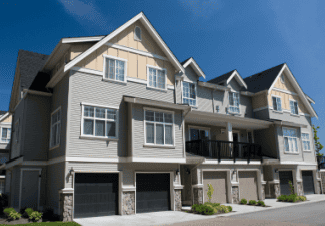5 Ways to Increase Rental Housing Revenue or Rents in 2021
 With 2021 finally here, it seems like we might finally be moving toward some semblance of normalcy. In recent months, landlords and building owners were just thankful to receive regular rent from their tenants. Now, however, it might be possible to increase rents and rental housing revenue to start covering your losses.
With 2021 finally here, it seems like we might finally be moving toward some semblance of normalcy. In recent months, landlords and building owners were just thankful to receive regular rent from their tenants. Now, however, it might be possible to increase rents and rental housing revenue to start covering your losses.
Raising the rent might not be the best way forward, especially as the pandemic is still going on in most parts of the world. We don’t want to punish anyone simply because they’re renting from us. But it might be possible to generate rental housing revenues in other ways.
Let’s have a look at some of these methods now and decide upon the best ones for your needs.
1. Rent Out an Amenity
Amenities are something you have to provide to renters. But you can provide some extras at an additional price. If any amenity is particularly in demand, such as parking space, you can rent it out to get additional revenue.
You can get even more revenue by charging more for parking during days when the area is more crowded than usual. For instance, if a city has a monthly or yearly festival going on, parking can become a precious commodity. The rates of parking will go up everywhere. So, there’s no reason why the space on your property will remain the same.
Keep in mind that you can offer parking to people who are not your tenants. If the tenants have an issue with cars taking up space so close to their living places, you can offer them a fraction of the revenue collected.
There might also be a permanent demand for parking on your property. In such cases, think about installing a parking lot or parking pad. You might allot one space to each unit you’ve rented out and keep the rest for paid parking.
2. Charge Separately for Utilities
Landlords and managers can increase their rental housing revenue by billing residents for their water usage on a separate basis. You can also raise the water rate instead of directly increasing the rent.
This method might work best in a mobile-home community. When someone sees a sign or commercial advertising mobile homes for sale, they won’t automatically assume that all utilities are included.
It might also be possible to invest and become a utility on your own. This means that you get some solar-powered grids, the kind that allows two-way transfers. This means that you can sell off the excess electricity. Fortunately, modern solar panels are now quite sleek and look more like terracotta or slate tiles.
3. Upgrade Your Services
While your residents might not like to pay higher rent, they might be happy enough to pay for an extra or upgraded service. This option also means that residents who can afford to pay a little extra will do so. Those who are really struggling to make ends meet will have a choice about what to pay for.
One logical way to go about this is to look at present services that might need a bit of tuning up. Consult your residents or tenants. That way, you can put up a suggestion box to get feedback on what needs improvement. For instance, if residents complain about the trash pick-up service, you should take a look at doing something about it.
With that improved service, you can raise the price along with the upgrade. Residents should be happy about the better services and gladly pay up in return. This increase in revenue will also set off the costs of improvement.
Apartments for rent usually have several services. But renters might appreciate some extra options. This could include housekeeping, lawn-mowing, landscaping, and so on. Of course, this doesn’t mean that landlords provide this service through their own labor; you can hopefully find a decent service provider who is local and relatively inexpensive. It might be possible to get a bulk discount based on the number of customers you’d be providing them with. Collaborate with such providers, and you might be offering their services to tenants after getting a cut or a commission.
Take a close look at the resources you have and think about how you can turn them into services for renters. If you have extra office space, think about renting it out as storage. The same goes for an unused basement or a garage.
4. Agricultural Collaboration
While you’re getting creative, think about going to a sort of tenant farming setup. If a landlord has the farming space, they might be able to get some tenants to farm it if they’re interested. Both parties can then share the profits as well as the costs. This activity will reduce the risks and increase the benefits for all concerned.
Of course, most urban landlords don’t have this luxury. If you’re one of them, consider other agricultural venues such as a farmer’s market, a community garden, or anything else where you can get together with your tenant to grow crops and sell them for a tidy profit.
Think outside the box here and see what your property has to offer. It’s possible that the soil and/or climate where you live is perfect for producing high-quality grapes or some other fruits/vegetables. In addition to selling these off within your community, the growing plants will enhance the aesthetics of the place, increasing the rental rates automatically. Any new tenants shouldn’t have a problem in paying higher rates for a more natural and beneficial atmosphere.
Don’t think that you have to stop at growing crops, either. Again, think in a flexible and creative manner. Many people are looking at drop-shipping crickets, earthworms, and anything else they can obtain from the soil. The world is changing due to this pandemic. So, we all have to do the same to survive and succeed.
5. Earn More from Existing Residents
When your tenants have been around for some time, you might be able to raise the rents more easily. You’ve developed a relationship with them. So, it’ll be more understandable if you raise the rents of people who’ve been there for over a year.
If you don’t feel right in raising the rate directly, think about offering some perks to old and trusted residents. One of the best ways to do this is to rethink your policy of allowing pets. Many rental properties don’t allow residents to keep pets for several reasons. However, when you’re sure that a tenant is responsible and trustworthy enough, you might be able to let them keep pets in return for a nonrefundable fee or even a monthly amount (or both). When you add up all the fees collected, they could add up to a tidy amount of rental housing revenue.
Another way of going about this is to implement strict late fees, especially for tenants who’ve made a habit of delaying payments. Landlords might feel all right with waiving late fees for some time. But they do so at their own expense.
The Takeaway
It’s hard to keep up with the costs of maintenance, vacancy rates, and other expenses related to property management. Raising rents and rent revenues will give you the cash flow you need for investing in more property. The ways we’ve discussed above will allow you to get creative and increase revenue without hurting your tenants. So, start thinking about implementing some of them in the near future.
Source: rentalhousingjournal.com















 Accessibility
Accessibility